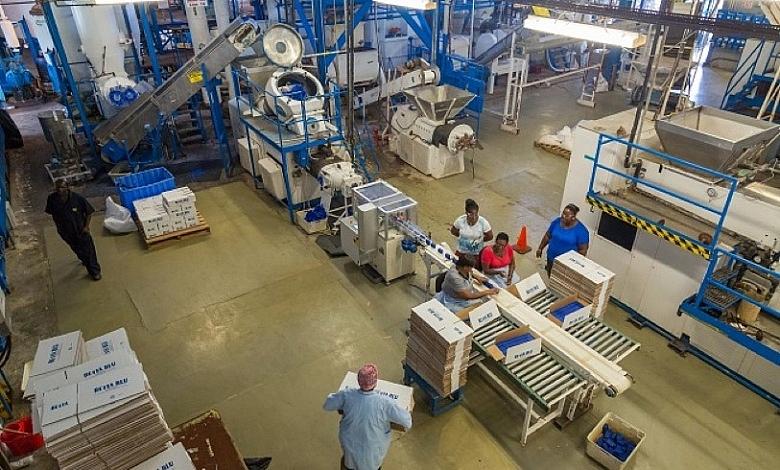Manufacturing Sector in Dominica

Manufacturing Sector in Dominica is a modest but strategically important part of the island’s economy, contributing to both domestic consumption and export diversification. Built upon a foundation of agro-processing, construction materials, and light manufacturing, the sector plays a key role in job creation, rural development, and supporting Dominica’s broader vision of economic resilience and sustainability.
Historical Context and Evolution of the Manufacturing Sector in Dominica
Dominica’s manufacturing sector began to develop meaningfully during the post-independence era of the 1980s, when efforts were made to diversify an economy heavily reliant on agriculture—particularly banana exports. Government policy shifted toward import substitution and small-scale industrial development, with initiatives to attract foreign investment and empower local entrepreneurs. Early manufacturing efforts focused on soap, coconut oil, bay oil, and rum production — often tied to existing agricultural outputs.
By the 1990s, the global banana market’s decline forced Dominica to further diversify its economic base. This led to renewed support for agro-processing and light manufacturing industries. Institutions like the Dominica Bureau of Standards and Dominica Export Import Agency (DEXIA) were established to promote production standards, export quality, and packaging, while the National Development Foundation of Dominica (NDFD) and Dominica Youth Business Trust (DYBT) supported small and medium-sized manufacturing enterprises.
Key Sub-Sectors and Products
Dominica’s manufacturing is predominantly based on the use of local raw materials from agriculture, forestry, and the marine environment. While not large in scale, the sector includes a range of niche and culturally significant products.
1. Agro-processing (largest sub-sector):
- Bay Oil – Dominica produces an estimated 85% of the world’s bay oil supply. Distillation and bottling are carried out by enterprises like Spice Products Development (SPD), with products reaching markets in Europe and North America.
- Coconut-Based Products – Soaps, oils, body creams, and hair products, formerly led by Dominica Coconut Products Ltd. (once a major employer).
- Pepper Sauces, Herbal Teas, Fruit Jams, Sea Moss Gels, Cassava Flour – Produced by local small businesses and cooperatives, many of which supply both domestic retailers and Caribbean diaspora markets.
- Cocoa and Chocolate Products – Cocoa sticks and small-batch chocolate bars, sometimes produced in partnership with agro-tourism.
3. Construction and Building Materials:
- Concrete and Aggregates – Companies like Redi-Mix Concrete Ltd. supply concrete for roads, housing, and public infrastructure.
- Paint and Coatings – Harris Paints Dominica Ltd. manufactures a range of paint products for domestic and regional sale.
4. Consumer Goods and Miscellaneous:
- Colgate Palmolive Dominica Ltd. – Previously a major manufacturer of soaps and detergents for local and regional distribution.
- Crafts and Local Products – Handcrafted soaps, candles, and cosmetics using locally sourced ingredients like honey, bay leaf, and tropical botanicals.
Economic Contribution and Employment
While the sector’s contribution to Dominica’s GDP is modest, it remains a key source of employment and self-employment, especially for women and youth in rural areas. In 2023, industry (including manufacturing) contributed approximately 12.2% of GDP, compared to 14.8% from agriculture and 65% from services.
Most manufacturing enterprises are classified as micro or small-scale businesses, often operating from home workshops, rural co-ops, or small production hubs. The government has encouraged clustering and the creation of agro-processing zones to improve economies of scale and quality control.
Export Markets and Regional Integration
Dominica’s manufactured goods are exported mainly to:
- Caribbean neighbors (through CARICOM)
- United States
- Canada
- United Kingdom and European Union (particularly niche products like bay oil, herbal teas, and essential oils)
Key export products include bay oil, rum, soap, coconut oil, pepper sauces, and bottled beverages. The island’s reputation for “clean and green” production is a marketing advantage in reaching health-conscious and eco-aware consumers.
Government and Institutional Support
A wide range of public and private institutions play an active role in strengthening Dominica’s manufacturing base:
- Dominica Bureau of Standards (DBOS) – Oversees product quality, labeling, and safety standards.
- Dominica Export Import Agency (DEXIA) – Supports packaging, export logistics, and trade fair participation.
- Ministry of Foreign Affairs, International Business, Trade and Energy – Develops industrial policy and manages investment promotion.
- Invest Dominica Authority – Attracts local and foreign investors, offering incentives for green and innovative industries.
- NDFD and DYBT – Provide training, loans, and mentorship for entrepreneurs launching manufacturing ventures.
- Caribbean Development Bank (CDB) and World Bank Projects – Fund infrastructure, agro-processing labs, and climate-resilient production initiatives.
Challenges and Future Outlook
Despite its potential, the manufacturing sector in Dominica faces several constraints:
- High production and utility costs
- Limited access to packaging and raw materials
- Small domestic market size
- Limited automation and access to modern machinery
- Transportation and export logistics
However, opportunities are growing in areas such as:
- Eco-certified products and sustainable packaging
- Digital sales and e-commerce
- Organic and “clean-label” exports
- Linking manufacturing to agro-tourism and heritage branding
Dominica’s continued investment in training, infrastructure, and innovation—particularly in agro-processing—positions the sector to grow in both domestic value and international relevance.




